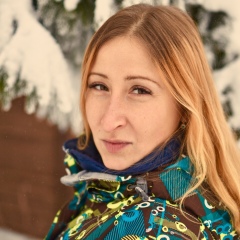Толкиен об Эльфах:
"В отношении перевода на немецкий осмелюсь посоветовать по возможности не использовать слова "Elf" и "elfen" в качестве эквивалентов слов "elf" и "elven". Я полагаю, что слово "Elf" заимствовано из английского и поэтому вызывает в немецком языке именно те ассоциации, которых я в особенности хотел бы избежать (если это возможно) – как у Дрейтона и в "Сне в летнюю ночь" (я подозреваю, что слово "Elf" проникло в немецкий из перевода последнего). Я имею в виду превращение "эльфов" в эфемерных, бабочкоподобных существ, населяющих цветы.
Я бы предложил воспользоваться словом "Alp" (а лучше даже "Alb", которое все еще приводится в современных словарях в качестве альтернативы, а, исторически, является более правильной формой). У них общее происхождение с английским "elf", и если даже слово "Alp" сближается по смыслу с английским "oaf", обозначающим злобных и проказливых духов или дурачков (имеются в виду "подменыши" ), то это относится и к английскому слову "elf". Я нахожу, что эти искаженные и грубые ассоциации лучше, чем "миленький" образ, созданный литературой". Эльфы из "мифологии" Властелина Колец совершенно не соответствуют фольклорным феям и эльфам, и, как я уже говорил (см. приложение F), я бы предпочел, чтобы из всех доступных слов использовалось самое древнее – пусть оно обретет свои собственные ассоциации в глазах читателя. В скандинавских языках можно взять слово "alf"." (Руководство по переводу)
"В отношении перевода на немецкий осмелюсь посоветовать по возможности не использовать слова "Elf" и "elfen" в качестве эквивалентов слов "elf" и "elven". Я полагаю, что слово "Elf" заимствовано из английского и поэтому вызывает в немецком языке именно те ассоциации, которых я в особенности хотел бы избежать (если это возможно) – как у Дрейтона и в "Сне в летнюю ночь" (я подозреваю, что слово "Elf" проникло в немецкий из перевода последнего). Я имею в виду превращение "эльфов" в эфемерных, бабочкоподобных существ, населяющих цветы.
Я бы предложил воспользоваться словом "Alp" (а лучше даже "Alb", которое все еще приводится в современных словарях в качестве альтернативы, а, исторически, является более правильной формой). У них общее происхождение с английским "elf", и если даже слово "Alp" сближается по смыслу с английским "oaf", обозначающим злобных и проказливых духов или дурачков (имеются в виду "подменыши" ), то это относится и к английскому слову "elf". Я нахожу, что эти искаженные и грубые ассоциации лучше, чем "миленький" образ, созданный литературой". Эльфы из "мифологии" Властелина Колец совершенно не соответствуют фольклорным феям и эльфам, и, как я уже говорил (см. приложение F), я бы предпочел, чтобы из всех доступных слов использовалось самое древнее – пусть оно обретет свои собственные ассоциации в глазах читателя. В скандинавских языках можно взять слово "alf"." (Руководство по переводу)
Tolkien about the Elves:
“With regard to the German translation, I dare to advise whenever possible not to use the words“ Elf ”and“ elfen ”as equivalents to the words“ elf ”and“ elven ”. I believe that the word“ Elf ”is borrowed from English and therefore calls in German those associations that I especially would like to avoid (if possible) - like in Drayton and in “A Midsummer Night's Dream” (I suspect that the word “Elf” has penetrated into German from the translation of the latter). I mean the transformation " elves "in the ephemeral, butterfly-like creatures that inhabit the flowers.
I would suggest using the word "Alp" (and even better "Alb", which is still given in modern dictionaries as an alternative, and, historically, is a more correct form). They have a common origin with the English "elf", and even if the word "Alp" comes together in meaning with the English word "oaf", meaning evil and mischievous spirits or fools (meaning "change"), then this also applies to the English word " elf ". I find that these distorted and crude associations are better than the “pretty” image created by literature. ”The elves from the Lord of the Rings’ mythology do not at all correspond to folklore fairies and elves, and, as I said (see Appendix F), I I would prefer that the most ancient of the available words be used - let it find its own associations in the eyes of the reader. In the Scandinavian languages, you can take the word "alf". " (Translation Guide)
“With regard to the German translation, I dare to advise whenever possible not to use the words“ Elf ”and“ elfen ”as equivalents to the words“ elf ”and“ elven ”. I believe that the word“ Elf ”is borrowed from English and therefore calls in German those associations that I especially would like to avoid (if possible) - like in Drayton and in “A Midsummer Night's Dream” (I suspect that the word “Elf” has penetrated into German from the translation of the latter). I mean the transformation " elves "in the ephemeral, butterfly-like creatures that inhabit the flowers.
I would suggest using the word "Alp" (and even better "Alb", which is still given in modern dictionaries as an alternative, and, historically, is a more correct form). They have a common origin with the English "elf", and even if the word "Alp" comes together in meaning with the English word "oaf", meaning evil and mischievous spirits or fools (meaning "change"), then this also applies to the English word " elf ". I find that these distorted and crude associations are better than the “pretty” image created by literature. ”The elves from the Lord of the Rings’ mythology do not at all correspond to folklore fairies and elves, and, as I said (see Appendix F), I I would prefer that the most ancient of the available words be used - let it find its own associations in the eyes of the reader. In the Scandinavian languages, you can take the word "alf". " (Translation Guide)
У записи 3 лайков,
0 репостов,
91 просмотров.
0 репостов,
91 просмотров.
Эту запись оставил(а) на своей стене Сара Керриган






















